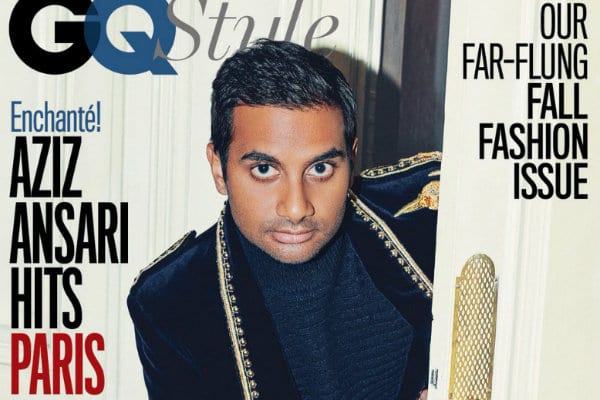Aziz Ansari Is Guilty. Of Not Being a Mind Reader.
Aziz Ansari and the Paradox of ‘No’
The Humiliation of Aziz Ansari
Babe’s Aziz Ansari piece was a gift to anyone who wants to derail #MeToo.
The poorly reported Aziz Ansari exposé was a missed opportunity.
Here’s why Aziz Ansari’s behaviour matters
WHAT WE NEED TO LEARN FROM THE AZIZ ANSARI CLUSTERFUCK
This assortment of headlines depicts the conjecture that a blog post written by a 23 year old woman called Grace, published on Babe.net on the weekend, has triggered. The worst night of Grace’s life involved a date with the US comedian and writer, Aziz Ansari, that ended in intimacy that she endured rather than enjoyed. She relented, rather than consented, and left feeling violated. When he messaged the next day to thank her for a fun night, she was direct.
“Last night might’ve been fun for you, but it wasn’t for me,” she replied. “You ignored clear nonverbal cues; you kept going with advances. You had to have noticed I was uncomfortable.”
In a statement earlier this week Ansari offered this explanation:
“The next day, I got a text from her saying that although ‘it may have seemed okay,’ upon further reflection, she felt uncomfortable. It was true that everything did seem okay to me, so when I heard that it was not the case for her, I was surprised and concerned. I took her words to heart and responded privately after taking the time to process what she had said.”
Grace’s 3,000 word account of the experience has sparked hundreds and thousands of comment pieces. Is Ansari guilty of sexual assault? Misconduct? Was the publication of the anonymous essay ethical? How can coercion and consent co-exist?
Sex and sexual politics are incredibly complicated, despite the desired simplicity of it all, and while I’m tempted to say this is compounded exponentially in the #MeToo and #TimesUp climate, it isn’t. It’s just highlighted because we’re seeing these complexities up close and having something of a public conversation about it.
Whether a private date that ends in sex that wasn’t enjoyed ought to have been appropriated into a published work for the world to dissect is up for debate. The fact it lends even a crumb of credibility to the idea that #MeToo has gone too far is frustrating but so too is the fact that being coerced into sex they’re not very comfortable with is something that most women can relate to.
"Being coerced into sex is something that's happened to almost every women I know." https://t.co/yf2qohjhdz
— 💥Dr💥 Julia Baird (@bairdjulia) January 16, 2018
To my mind, feminist author Jessica Valenti captured the heart of this issue perfectly: “A lot of men will read that post about Aziz Ansari and see an everyday, reasonable sexual interaction. But part of what women are saying right now is that what the culture considers ‘normal’ sexual encounters are not working for us, and oftentimes harmful.”
Grace’s essay is reminiscent of another recent viral hit, Cat Person, a piece of fiction published by the New Yorker in December of 2017 that details a romance and relationship between Margot and Robert. Like Grace’s piece it centres around dating, power and consent and to say it struck a chord is an understatement. It was read and shared so widely, so quickly, that it garnered the author a seven-figure book deal.
It is clear from Cat Person and Grace’s story that Valenti is right: what men and women experience in the realm of sexual activity is different, and isn’t necessarily working for women.
Exploring why that is and how it can be different is far from simple but that is hardly a reason to shy away from it. Now is perhaps the time to embrace the difficulty of it: to look it in eye and be brutally honest about what women have accepted and endured – not just in workplaces but in bedrooms and houses and anywhere else they have ever been intimate.
https://twitter.com/JessicaValenti/status/953375440747581441
The autonomy of women is at the heart of the issue and as Emily Reynolds wrote in The Guardian:
“This isn’t unrelated to the (completely unfounded) argument that the breadth of #MeToo has become problematic, and that to include everyday incidents related to sex and dating, rather sticking to more severe abuses, is to conflate the two.
This assertion implies that women don’t know the difference between rape and coercion – which they do. Nobody is arguing that what Ansari is alleged to have done is equivalent to the more serious crimes Harvey Weinstein has been accused of, or even to the more obvious abuses of power perpetrated by men such as Louis CK. What we are saying, however, is that all of these things exist on a spectrum of abusive behaviour that negatively and persistently impinges upon women’s lives.”
The spectrum is the same and there’s little point in only examining the black and white at either end. It is clear that in between there is a lot of grey that women want to explore. And while the solutions might not be simple the starting point is: women are human beings. They are entitled to enjoy or abstain from what they please. They do not exist merely to fulfil the sexual desires of others.
https://twitter.com/pryorlisa/status/953048543039651840



